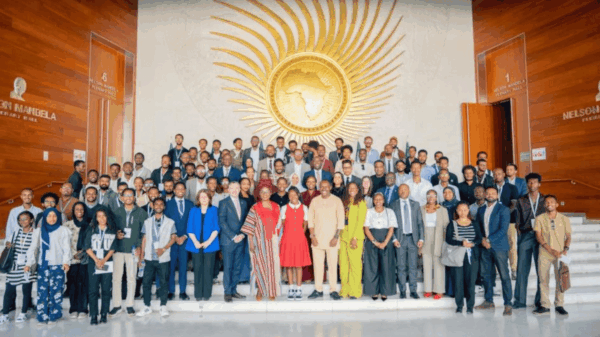In a significant move to bolster India’s digital infrastructure, Google has unveiled various initiatives aimed at enhancing AI safety, security, and digital literacy. As the nation accelerates its journey toward an AI-driven economy, Google’s message resonates: safety is not merely an add-on; it is a foundational element for the transformative adoption of AI technologies. This announcement comes in the lead-up to the AI Impact Summit 2026 scheduled to take place in New Delhi.
As sophisticated scams proliferate in India, employing methods such as digital impersonation, voice cloning, and screen-sharing fraud, Google is integrating advanced AI systems into everyday devices and services. These updates focus on multiple facets of digital safety, including consumer protections, enterprise security, and AI governance.
Enhanced On-Device Protection
One of the standout features announced is the Real-Time Scam Detection for phone calls, powered by Google’s Gemini Nano model. This feature, which is set to roll out on Pixel devices, analyzes calls entirely on-device, identifying suspicious patterns without recording audio or transmitting data back to Google. It activates notifications for users when receiving calls from unknown numbers, ensuring complete user control over the feature.
To tackle the growing threat of financial fraud, Google is piloting a new screen-sharing protection flow in collaboration with platforms such as Google Pay, Navi, and PayTM. Android devices running version 11 or higher will alert users if a financial application is accessed during a screen-sharing session with an unknown contact, allowing them to terminate the call and block the scam attempt.
Additionally, Google Play Protect has successfully blocked over 115 million attempts to install potentially harmful sideloaded applications, while Google Pay continues to issue more than a million warnings weekly regarding risky transactions.
Strengthening AI and Enterprise Security
Google also detailed advancements in enterprise-level security, introducing the Enhanced Phone Number Verification (ePNV), a secure SIM-based protocol designed to replace traditional SMS one-time passwords (OTPs) and enhance sign-in security across applications.
Early access to SynthID, Google’s watermarking and detection technology for synthetic media, is being provided to key publishers and research partners, including Jagran, PTI, and India Today. Furthermore, the company is deploying CodeMender, an autonomous code-security agent designed to detect and patch zero-day vulnerabilities, adding to its suite of agentic security tools.
Google for Startups is scaling AI security initiatives through training programs in collaboration with Nasscom and IntelligentAgents, aiming to equip approximately 500 startups with the Secure AI Framework (SAIF) 2.0. Alongside this, new privacy-centric tools like Private AI Compute, Parfait, and VaultGemma have been introduced, complemented by guidance for governments and industries on deploying privacy-enhancing technologies.
Empowering Vulnerable Communities
In a move to foster digital literacy, Google announced the launch of its flagship LEO (Learn and Explore Online) program in December 2025. This initiative is focused on training teachers and parents to create safer online environments for children. The Super Searchers initiative has already trained 17,000 teachers and 10,000 students this year, reaching over 1 million individuals through its cascading model, with plans to extend this outreach to vulnerable groups such as women and seniors.
Programs under the DigiKavach initiative, including “Sach Ke Saathi,” have conducted in-person safety training for seniors across 25 cities, impacting over a million individuals. The recently introduced Be Scam Ready interactive game further empowers users to identify and respond to scams through real-world simulations.
Collaborative Efforts for AI Governance
Google is enhancing its partnerships with regulators, academic institutions, and civil society organizations to strengthen AI governance frameworks in India. Notably, the company supported the Reserve Bank of India in releasing a public registry of authorized Digital Lending Apps, aiming to protect users from fraudulent operators.
The company’s collaboration with IIT Madras and CeRAI is focused on developing the Hindi AILuminate Safety Benchmark and contributing to datasets for AI Safety Commons, promoting the adoption of the Secure AI Framework across various industries.
Through the APAC Digital Futures Fund, Google.org is investing $1 million in research related to AI governance throughout the region. In India, the CyberPeace Foundation will receive $200,000 to enhance AI-driven cyber-defense tools and facilitate hackathons aimed at fostering safe digital ecosystems.
Google underlined that India’s complexities—including large-scale adoption, linguistic diversity, and varying device capabilities—make it an ideal testing ground for building AI systems that can be effectively scaled across the Global South. As India embraces the rapid growth of AI, Google reaffirms its commitment to establishing robust safety measures to ensure a secure digital environment for individuals, businesses, and governmental entities alike.
 Türk Telekom Accelerates AI-Driven Cybersecurity Investments, Blocking 2,620 Attacks in 2023
Türk Telekom Accelerates AI-Driven Cybersecurity Investments, Blocking 2,620 Attacks in 2023 AI-Powered Cybersecurity Tools Achieve 95% Detection Accuracy in Real-Time Threat Response
AI-Powered Cybersecurity Tools Achieve 95% Detection Accuracy in Real-Time Threat Response AI-Powered Tools Revolutionize Cybersecurity with Real-Time Threat Detection in 2025
AI-Powered Tools Revolutionize Cybersecurity with Real-Time Threat Detection in 2025 SMBs Must Update Cybersecurity Policies as AI Investment Rises, Warns CPA Australia Report
SMBs Must Update Cybersecurity Policies as AI Investment Rises, Warns CPA Australia Report European Commission Proposes Targeted Changes to AI, Cybersecurity, and Data Regulations
European Commission Proposes Targeted Changes to AI, Cybersecurity, and Data Regulations




































































